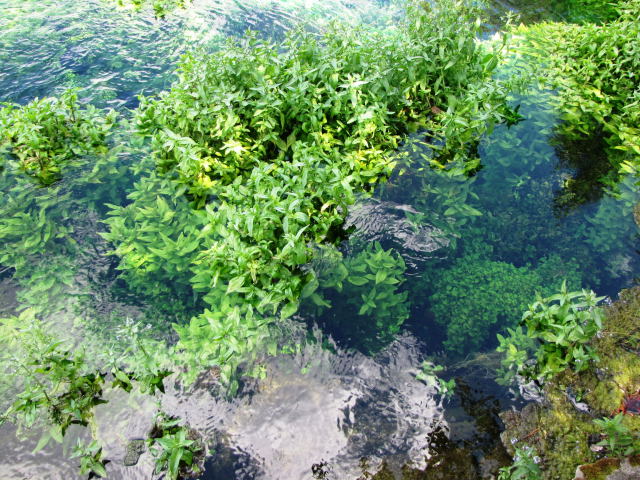 |
| Giant Springs has to be the most
beautiful spring we've ever seen. We stood and stared into it for
the longest time. It "drew" us and we didn't want to
leave. |
 |
| Harley and "Dad",
enjoying the beauty of Giant Springs State Park. |
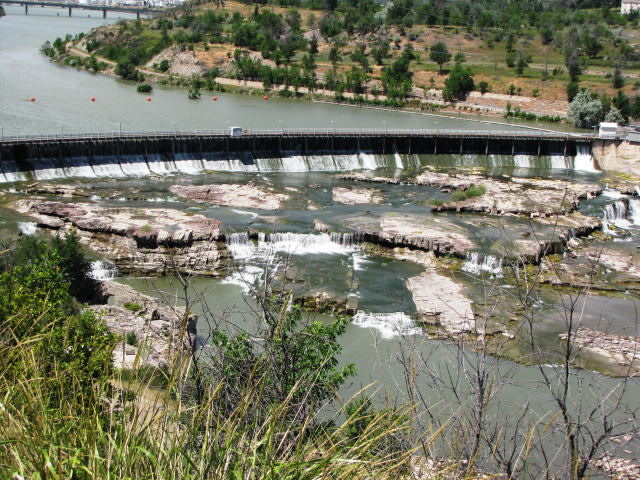 |
| The Great
Falls of the Missouri River are a series of 5 waterfalls beginning near
the city of Great Falls, Montana. The 5 falls are located within a 10-mile
stretch of the river. The
Missouri drops a total of 612 feet from the first of the falls to the
last, which includes 187 feet of waterfalls and 425 feet of riverbed
descent. The first falls we viewed, as we traveled River Road, was
Black
Eagle
Falls
at
26 feet high. |
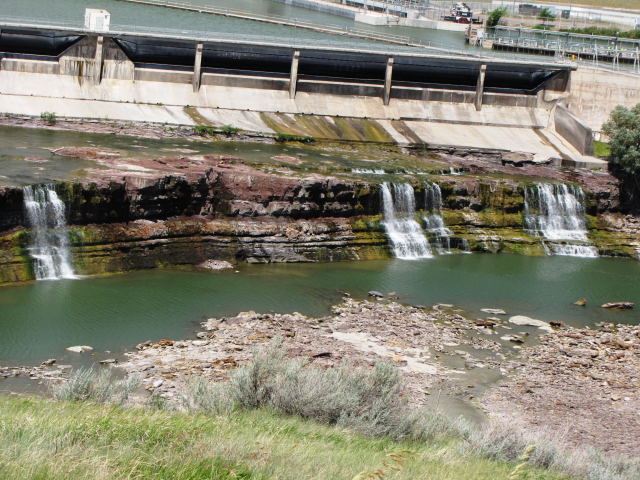 |
| Our
next stop was at Rainbow
Falls at 44 feet high. |
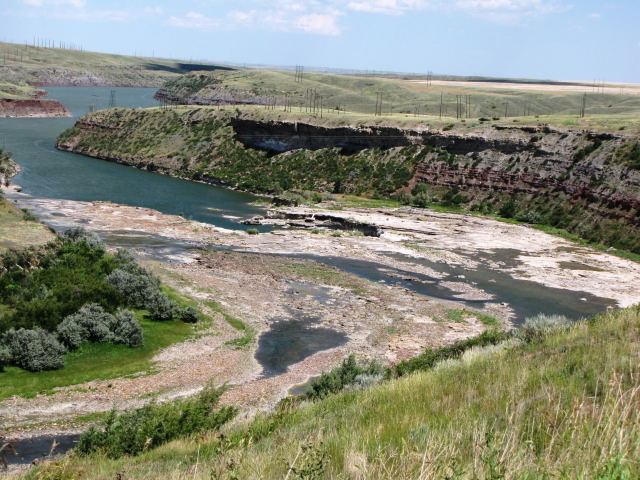 |
| Crooked Falls, also known as
Horseshoe Falls
, was high and dry since the water level was low. When
running, it measures 19 feet in height. |
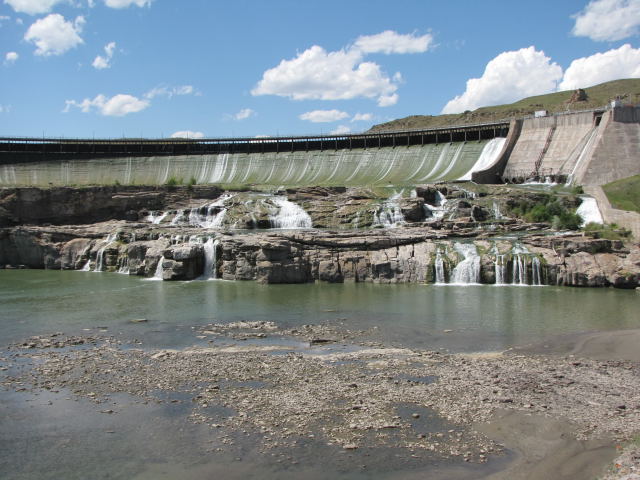 |
| And, our third dam to visit was
above the "Great Falls" where the city gets its
name. William Clark measured the falls to be a height
of 97 3/4 feet and, surprisingly, he was only one foot off in his
measurement - amazing! As you can see in our photos, most of the
falls have dams above them so we can't see them in their original, natural
state. |
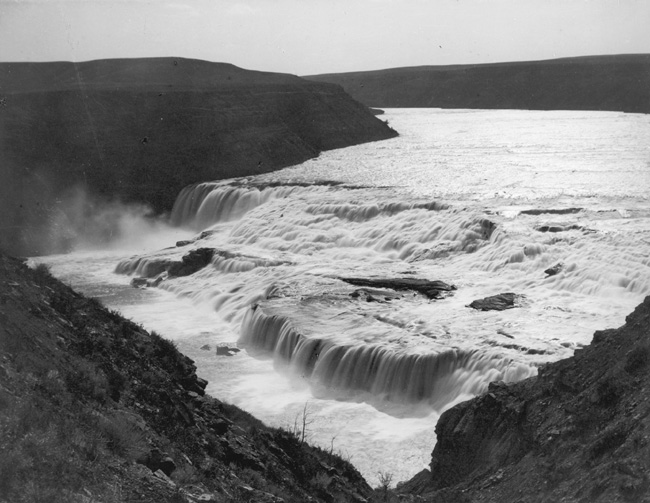 |
| But THIS is what Lewis and Clark
saw. Can you imagine facing this obstacle when you're traveling
upstream? Guess that would be better than facing it going
downstream! The Great Falls have been described as
"spectacular",
one of the "scenic wonders of America",
and "a major geographic discovery".
Meriwether Lewis said they
were the grandest sight he'd beheld thus far in the journey of the Corps
of Discovery. Lewis and Clark saw the waterfalls as an
obstacle. It took them a month to portage all their boats, supplies
and equipment 18 miles around the 5 falls in this area. However, a
century later, others saw it as a way to meet the region's energy
needs. The natural rapid drop in river elevation provided a
ready-made source of water power to spin turbines and generate
electricity. Hence, the dam and powerhouse were constructed between
1913 and 1915. |


